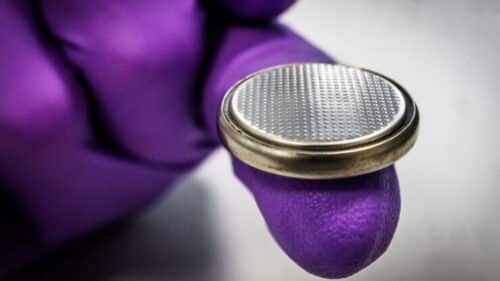The new zinc-lignin battery offers an alternative to lithium, promising a safer and more sustainable future in energy storage.

Researchers from Linköping University (LiU), Karlstad University, and Chalmers University in Sweden have created an affordable battery using zinc and lignin, a paper industry byproduct, eliminating the need for lithium. This innovation aligns with the growing adoption of renewable energy sources like wind and solar, heightening the demand for energy storage solutions typically reliant on materials like lithium and cobalt.
Despite achieving the highest energy density known to date, mining minerals for these batteries involves significant environmental and human rights challenges. Furthermore, lithium-ion batteries are difficult to recycle, rendering them unsustainable for long-term use.
Turning to Zinc
Zinc-based battery technology, typically used for non-rechargeable applications, is prevalent in the market. However, lithium-based solutions are favoured for their higher energy storage capacity despite their risks of fire and explosion. In contrast, zinc-based batteries are much safer and could replace lithium-ion batteries with rechargeable alternatives. Motivated by this potential, researchers at the Laboratory of Organic Electronics at LiU have focused on developing a battery design that utilises zinc and lignin.
Resolving issues with zinc batteries
The limited use of zinc batteries has primarily been due to zinc’s reactivity with water in the electrolyte, which leads to hydrogen gas formation and renders the zinc unusable. However, the researchers have improved the stability of zinc by using a different type of electrolyte known as water-in-polymer salt electrolyte (WiPSE), demonstrating enhanced durability in their experiments.
The newly developed zinc-based battery stands out by retaining its charge for a week, unlike others that discharge in just a few hours. It maintains 80 per cent of its performance over 8,000 cycles. Currently small in size, the technology behind this battery is scalable to the dimensions of a car battery. In terms of energy density, it compares favourably to lead-acid batteries but without containing any toxic components, making it more environmentally friendly.






